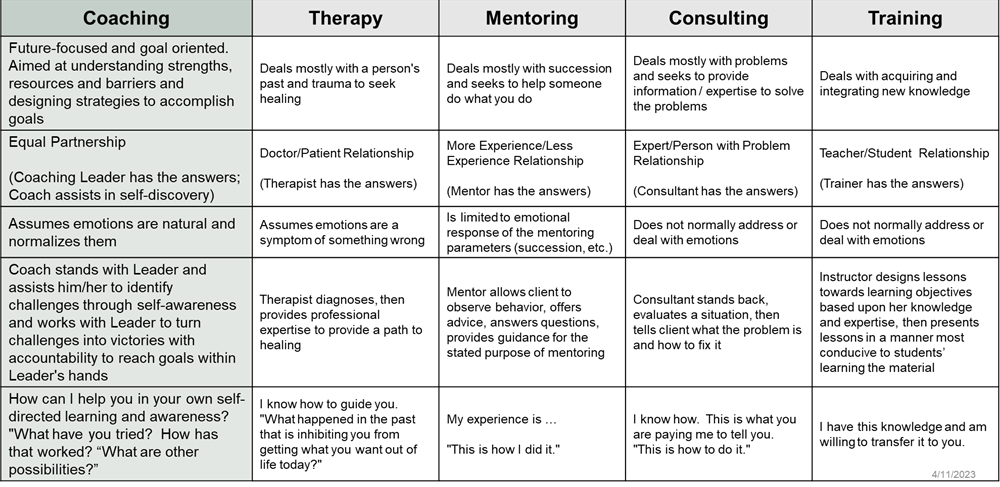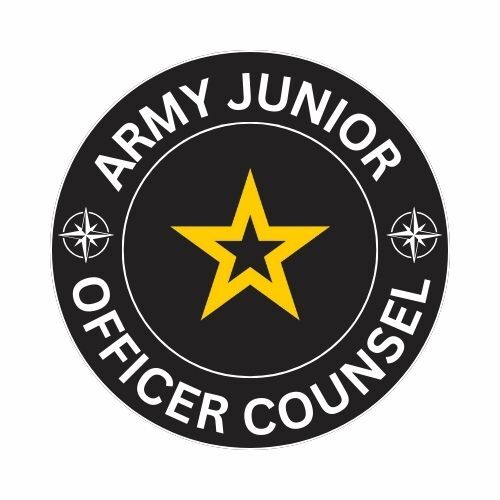“Being All You Can Be” with the Army Coaching Program

One of the central promises of the Army is the opportunity to “Be All You Can Be”, the idea being that service in the Army will reveal to you everything that you are capable of being or achieving. In all instances Soldiers are expected to face and overcome adversity. Leadership potential is a summation of this internalization process and how it is applied it to future problems. The Army Coaching Program offers a critical, but underutilized, advantage in maintaining the Army’s enduring competitive leadership advantage against peer and near-peer threats. As we prepare for future conflict and competition against a backdrop of generational change within our service’s leadership, coaching offers the ability to “upskill” leader development across the force.
The acquisition of knowledge, skills, and abilities requires deliberate processing and introspection on the part of a leader. Too often, self-reflection is set to the wayside against a backdrop of personal and professional demands. This in turn, leads to a diminishing set of returns and the potential rise of counterproductive leadership traits. The Army Talent Management Task Force recognizes this as a problem and has created the Army Coaching Program as a means of countering it. Open to any Department of the Army Soldier or Civilian, the Army Coaching Program is designed to pair you with a coach who gives you the time and space to confront your leadership challenges and develop a plan of action to continuously improve as a leader. Army Coaches are professionally trained and accredited through an International Coaching Federation (ICF) training program and are required to abide by the ICF code of ethics. Leaders who have engaged with Army Coaches have found the experience “eye-opening” and revealing on a deep and personal level for their leadership potential. In many cases, this involves confronting uncomfortable truths about personal leadership styles and choices. In facing these fears, the leaders find a way forward that works for them without compromising personal beliefs and values.
There are multiple ways that you can develop as a leader, generally falling along five distinct disciplines. A holistic approach to leader development incorporates all these paths in varying degrees based on individual needs, time, resources, and abilities. Of these methods, coaching is typically the least leveraged as there are limited numbers of trained professional coaches, and in the private sector, there is a high (~ $150/hr) cost to use them. Engaging with an Army Leader Coach gives the Soldier the maximum agency and flexibility to determine the best growth-path for themselves. An effective Army Leader Coach will also identify areas where one of the other disciplines may be better suited to fulfill the Soldier’s needs.

Growth, but at what cost?
Leader development is a deliberate, continuous, and progressive process intended to produce competent and committed professional leaders of character. There is much emphasis placed on competence and commitment from Army leaders with a seeming minimum of thought given to an individualized approach from an institutional level. This results in growth and development primarily driven by sets of operational experiences (think key developmental assignments) vice an approach that focuses on the actual process, for that leader, in each of the duty positions they hold. Absent a sustained mentorship approach or active involvement of a professional trainer, this approach could lead to “leader burn-out” or a “culture of block checks” when it comes to developing as a leader and impacting an organization. Centralized attempts to force every Soldier to have a mentor have largely fallen flat – many mentors have demands of their own and/or are unfamiliar with productive mentorship techniques. Finally, there is a risk of perpetuating counterproductive leadership cultures across larger organizations if the mentors themselves do not fully embody the Army Values in word, deed, and spirit.
Critical to combating this is applying a holistic approach to personal self-development. Coaching lends itself to this by forcing the type of self-reflection necessary to connect knowledge, skills, and abilities gained from a particular assignment to the “grand arc” of a personal journey as both a human being and an Army Leader. When this connection is made, it becomes easier to identify and end counterproductive behaviors while also recognizing and emphasizing positive personal attributes that lend themselves to professional and personal success. No one wants to be told at the Battalion Commander Assessment Program that the sum of the previous 15+ years of their Army career is to be found “not certified for command” potentially due to a history of counterproductive leadership as interpreted by the panel. A way to stay ahead of this possibility and contribute to a positive command climate is through coaching. There is no guarantee that a mentor will be able to give you the exact tools that you need; the circumstances around their experience as it relates to your current situation may be dissonant or unrelatable. A coach offers the means to meet you where you are and partner with you to create a plan of action that holds you accountable and meaningfully contributes to your short- and long-term growth.
Army Coaching in Practice
Coaching requires a very open, honest, and growth-oriented mindset to engender leader development. These are easy words to say, but if you are unwilling to accept the possibility that everything you’ve done to get to where you are may not lead you to future success you’re not growth-oriented. The coach functions as a mirror to help you “see yourself” and understand where you can actively apply your efforts to improve without judging your past actions. By focusing exclusively on your future success, the Army coach partners with you and empowers you to make immediate changes to become a more effective leader. The Army coach will engage with you, typically over a platform like Microsoft Teams and take you through a guided session. The use of face-to-face technology enables the coach to explore energy shifts and other non-verbal cues that can lead to deeper understanding of a viable plan of action for personal growth. While specific questions asked are unique to each coach and situation, in general, they follow a common arc that starts with establishing goals and ends with a definitive plan action with buy-in and accountability. Along the way, the coachee is supported, validated, and challenged to achieve a more complete understanding of where their growth need lies. Alone or in conjunction with other disciplines, coaching provides a needed and powerful force-multiplier for leader development.

Thriving, not Surviving
As the Army leverages every competitive advantage for the 21st century, it is important to remember that leader development and the quality of leadership we enjoy transcends every technical advancement. In a future battlefield cluttered with technology, complex environmental factors, and a near-peer or asymmetric adversary there will be no substitute for decisive and effective leadership. The confident and capable leaders of the battles of tomorrow must be developed today. That development requires a clear-eyed, humble, and honest approach that is continuous and proactive. Coaching is an under-leveraged and under-utilized resource that is ready to give you the foundations of building that advantage today. Ask yourself, “how will you be all you can be, today?”
Author Biography
MAJ Jesse Bryant is the post-KD CPT Career Manager for Infantry Branch HRC and is an Army Leader Coach. He is a 2014 graduate of the United States Military Academy and can be reached at jesse.r.bryant3.mil@army.mil. The Army Leader Coaching Request can be submitted at this link: https://www.milsuite.mil/book/groups/army-coaching-program



